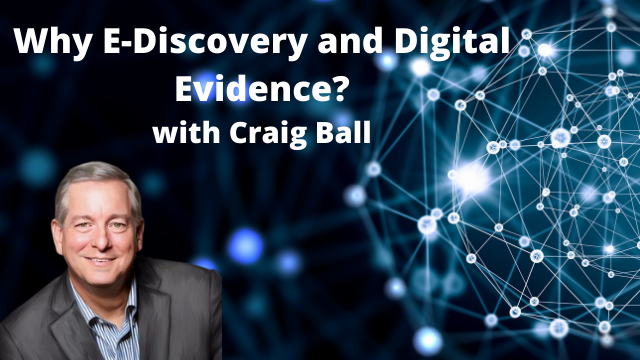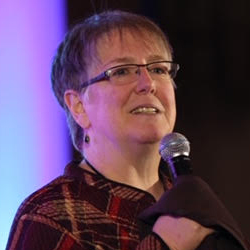
Craig Ball’s “workbook” has become the de facto course on electronic discovery. A labor of love that Craig offers freely to the public on his website, the workbook is a reliable and entertaining foundation for anyone who wants to learn about the electronic part of discovery. [Disclosure: Craig Ball is EDRM’s general counsel.]
This week, Craig penned a scenario based blog post to illustrate why understanding eDiscovery competence is so critical to the trial lawyer. The scenario contemplates a simple slip and fall in a grocery store, a case where custom might be that both sides might simply agree not to ask for electronically stored evidence (ESI). Before long, the scenario includes cash register logs, video surveillance in the stores, Facebook accounts and more.
As both sides dodge and dither, the information sought in discovery vanishes as, e.g., the store purges old records or plaintiff upgrades her digital devices. All but a minute of video leading up to the fall has been overwritten by the time the first discovery request is served. When that scant minute proves too short to establish how long the grease was on the floor, the plaintiff is prejudiced and files a Motion for Sanctions seeking to punish the defendant for the failure to preserve crucial evidence. When it’s learned the plaintiff closed her Facebook account after the fall and her posts are gone, the defendant files its own Motion for Sanctions.
Scenario posed by Craig Ball
In conversation, Craig and I have sparred on the necessity for education on cybersecurity, information governance and privacy within the eDiscovery context. With limited time for education, Craig makes the case most eloquently, that e-Discovery (yes, he is a dash man) has so many facets requiring education that the security and IG classes take up too much air at our conferences and CLE’s. His argument is all that more compelling as he lays out what needs to be proven, what is available to prove it, and the actions both sides can take to obfuscate or cooperate.
Too, discovery is a trial lawyer’s most daunting ethical challenge. It demands lawyers seek and surrender information providing aid and comfort to the enemy—over the objections of clients, irrespective of the merits of the case, and no matter how much they distrust or detest the other side. Is there a corollary duty to act against interest in any other profession?
Craig Ball
This is a marvelous “trailer” designed with love to engage students and reluctant practitioners alike to explore the fulsome world of e-Discovery, in guise of an unassuming PDF workbook, Ver. 21.0214 at this writing, which will take the seeker from the 0’s and 1’s to establishing the e-proof to win or settle a case. Highly recommended for all of us, experienced or not.


